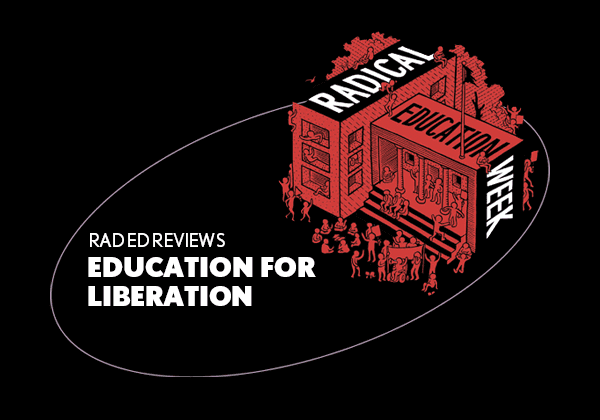Five years ago this week, a group of community activists and SRC collective members set up a tent on Eastern Avenue for the first Radical Education Week at USyd. Its aim was to foster knowledge and skill sharing outside of the university establishment, for free rather than for profit, and with a vision of dismantling oppressive structures. Rad Ed Week has since been an annual student-led programme of education for liberation, introducing fresh-faced leftists over the years to concepts ranging from prison abolition to activist legal skills, typically unheard of in formal university settings.
This year, Rad Ed takes place sadly not in a tent — which would allow people on Eastern Avenue to wander in and out — but over Zoom. A welcome change however, is that the series now spans the whole semester rather than just one week, to minimise Zoom fatigue. It kicked off with a seminar on Education for Liberation on Thursday hosted by James Sherriff, Maddie Clark and Priya Gupta; a fitting introduction to the series and a reminder that students have the power to gather outside of the classroom and take learning into their own hands.
Priya, one of the organisers of Rad Ed, told me that “It was important to us to ground the series in this first event, to set the tone for participants and facilitators alike and ensure that we do not inadvertently replicate the same top-down model of teaching in this series that we are attempting to subvert.” She hopes the series will “give students a sense of a learning community in a time where lockdown has severely damaged any sense of community we have at university.”
The seminar involved round-robin discussion and breakout rooms about attendees’ university experiences and what they would like to transform. Common points of frustration were the bureaucracy of special considerations, confusion about degree requirements, cuts and restructures seeing courses disappear, lack of accommodation for different disabilities, and a feeling that the campus experience is made with only white, affluent people in mind. The list goes on. For many of us, it was having classes taught by passionate tutors that made the downsides of university as it currently exists worth still going, though this came with the recognition that tutors are forced to perform unpaid work in order to create these positive learning experiences.
The critical pedagogical teachings of Paulo Freire were a touchstone to the seminar. James and Priya discussed how mainstream education is driven by the idea of students as passive receptacles and teachers as depositors, reproducing the top-down dynamic of an oppressive society. As Freire argues, the ‘banking model’ of teaching encourages students to interpret the world as static rather than something that they have the power to change. Attempting to combat this, the seminar was structured to enact a revolutionary alternative for education, encouraging attendees to use their own personal experiences in discussion with no unidirectional hierarchies of teacher and student involved.
Towards the end of the seminar, a discussion was had about the importance of underpinning education activism with emancipatory and democratic ideals. Attendees argued that students and staff organising collectively to cause disruption and place pressure on management was the way forward, enlisting as an example the strikes in 1974 that successfully won a feminist philosophy department. Ultimately, a view was reached that the perfect education system isn’t going to exist under capitalism, but that students and staff have power in numbers to fight for education reforms as part of an ongoing system overhaul.
“You can’t hand someone liberation, they have to seize it for themselves,” James said, summarising the main takeaway of the workshop. The vision of an emancipatory education may be a long struggle away, but in settings like this we can catch glimmers of possibility.
You can follow the Radical Education Week page here.





